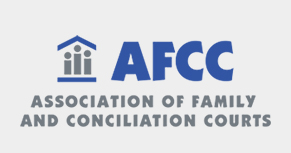As a psychologist, I am fascinated by the perplexity of human behavior, especially when we do things that don’t help us or those we love.
The truth is, a great deal of the things we do (and don’t do) on a moment-by-moment basis are completely outside our immediate consciousness. These autopilot actions involve a cognitive state in which we act without self-awareness.
While we may feel we are present and consciously choosing what we say and do, empirical research suggests otherwise.
For instance, a recent study published in the journal Science reported that the average person spends roughly 46.9% of their waking hours in this autopilot mode.
The average person spends roughly
46.9% of their waking hours
in autopilot mode
This means we are only consciously present for just over half of our time during the awake state. It is no wonder that many of our choices can lead to anxiety and depression.
Anxiety can be described as worrying about the future, and depression as worrying about the past. During these states are thoughts can turn negative and impact our emotions and behavior.
Behaviors can become habits, good or bad, which often become life-long patterns. It is this complicated chain of events that largely defines how we experience life.
Unfortunately, not all learned behaviors are good for us, and often the quick fixes for negative moods (e.g., Ben and Jerry’s ice cream or “one more” drink) make things worse.
However, change is possible and it all starts with awareness.
As Victor Frankly stated: “Between stimulus and response there is a space. In that space is our power to choose our response. In our response lies our growth and our freedom.”
Two exciting and promising treatments to put yourself back in control are neurofeedback and biofeedback – real-time displays of brain activity and physiological feedback to teach you an effective way to quiet the fight and flight center, while strengthening your ability to carry out higher order tasks, and helping make the life changes you desire. I personally enjoy incorporating these treatments with Mindfulness-Based Cognitive Therapy (MBCT), which can offer a powerhouse of change potential!
I would love to share with you the skills to become more present in the moment and be more in control of your life. These treatments are particularly helpful for the following conditions:
- Major depression
- Anxiety
- Addictions
- Anger

If you would like to learn more about mindfulness-based therapy, neurofeedback, or biofeedback, give us a call today – 360-692-3970 (www.nwfamilypsychology.com).
References
1) A Wandering Mind Is an Unhappy Mind Matthew A. Killingsworth and Daniel T. Gilbert Science 12 Nov 2010: Vol. 330, Issue 6006, pp. 932 DOI: 10.1126/science.1192439.





